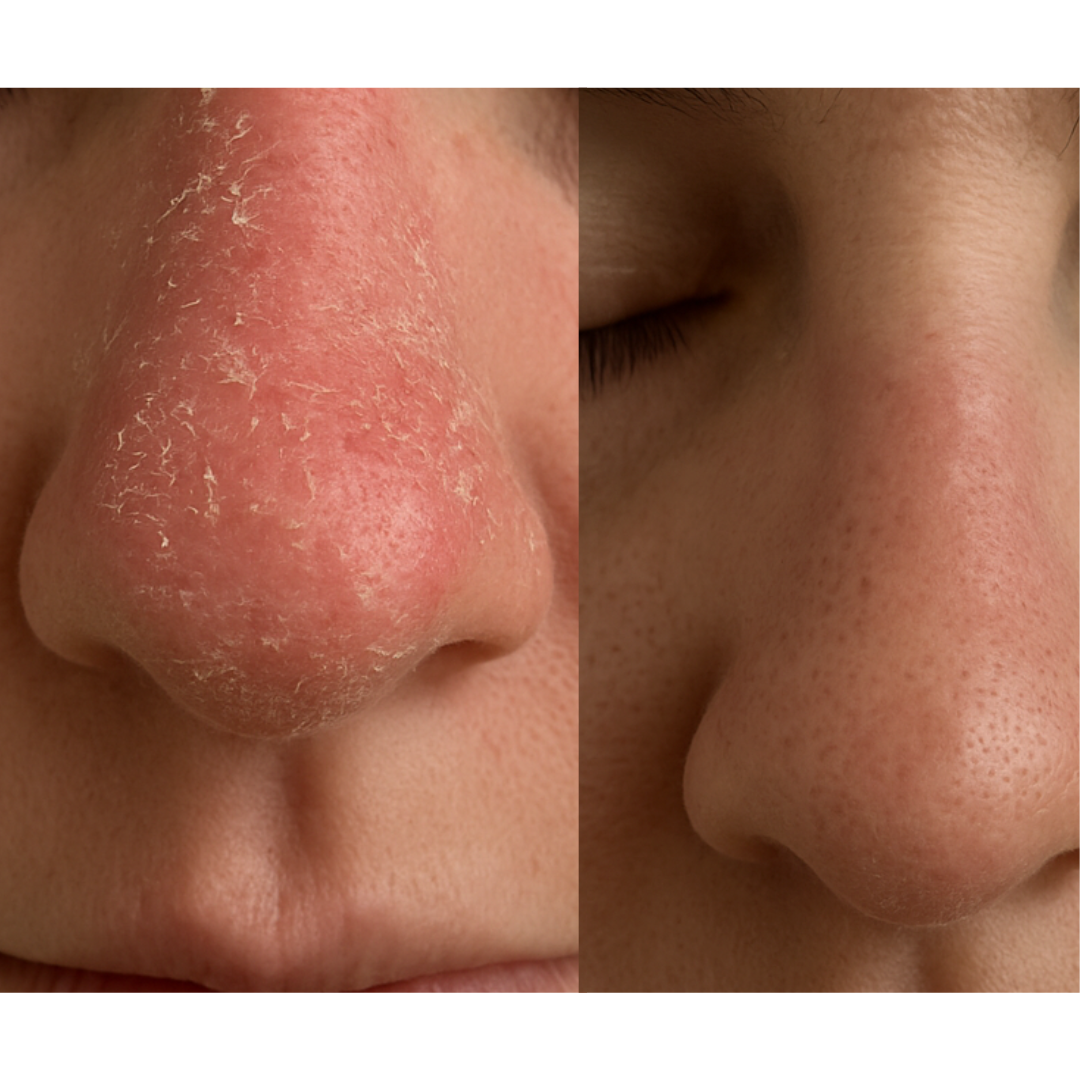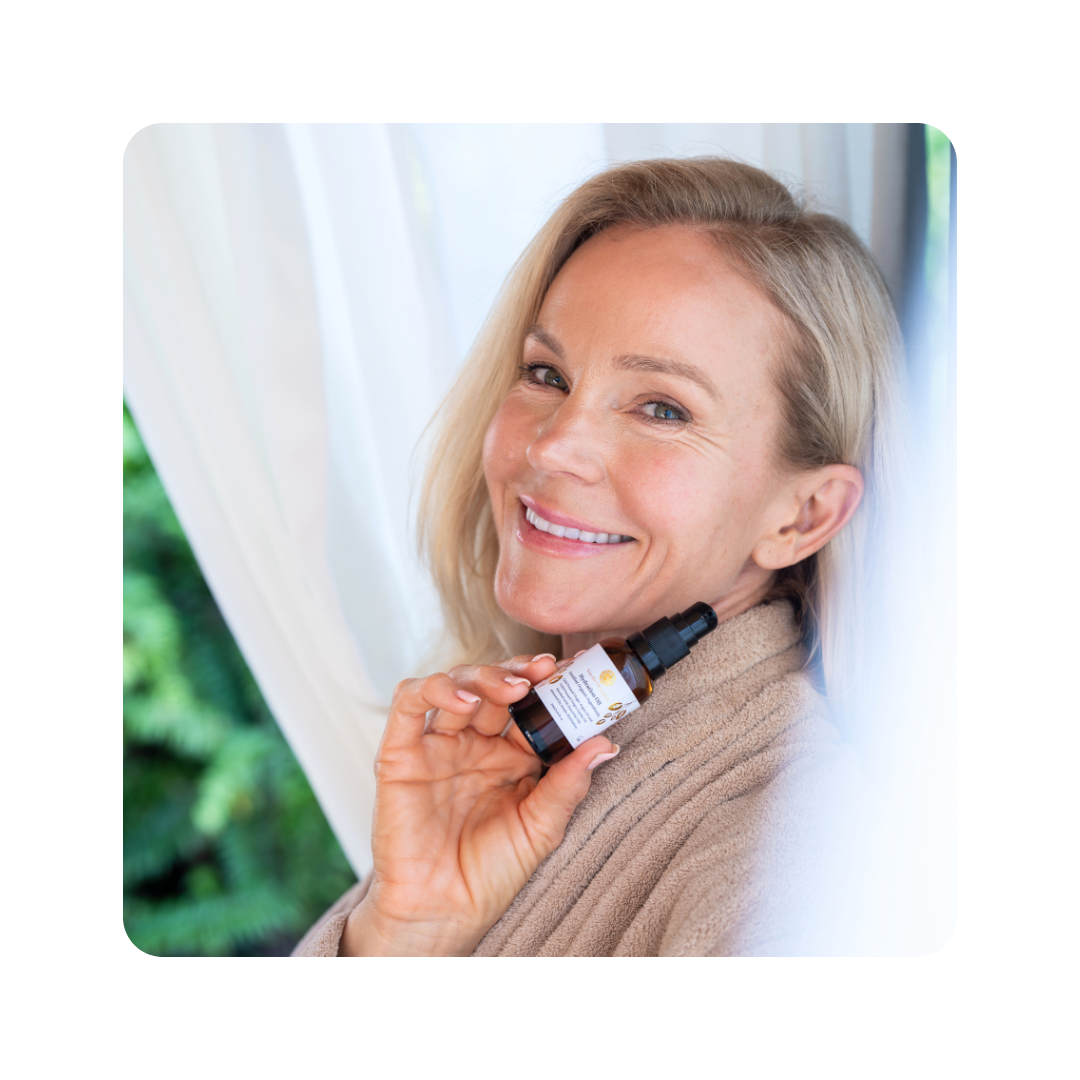The Skin Barrier: Your First Line of Defence Against Redness
If you’ve ever wondered why your skin feels red, irritated, or overly sensitive, the answer often lies in one place: your skin barrier. This invisible shield plays a huge role in keeping your skin calm, hydrated, and protected. And when it’s weakened, as often happens with age, menopause, or skin conditions like rosacea, redness and irritation become a lot harder to manage.
What Is the Skin Barrier?
Think of your skin barrier like a brick wall.
- The bricks are your skin cells.
- The mortar is made up of oils, ceramides, and fatty acids.
When that wall is strong, it locks in water and keeps irritants like pollution, bacteria, and harsh products out. But when the barrier is damaged, tiny cracks form, allowing moisture to escape and irritants to sneak in. The result? Redness, dryness, and sensitivity.
Why the Skin Barrier Weakens Over Time
Several factors can chip away at the skin barrier:
- Hormonal changes: During menopause, oestrogen levels drop, reducing natural lipids and hydration (Climacteric Journal).
- Over-exfoliation: Harsh scrubs or chemical exfoliants can strip away protective oils.
- Environmental stressors: Sun, wind, and pollution all wear down the barrier.
- Ageing: Natural oil production slows, making it harder to maintain that protective “mortar” (Journal of Dermatological Science).
Signs Your Barrier May Be Damaged
A compromised barrier often shows up as:
- Redness and flushing
- Burning or stinging when applying products
- Persistent dryness or tightness
- Flaky patches or rough texture
If these sound familiar, your barrier may be crying out for repair.
How to Repair and Protect Your Barrier
The good news? Science shows that with the right care, the barrier can be restored (Clinical, Cosmetic and Investigational Dermatology). Here’s how:
- Simplify your routine: Stick to a few gentle, hydrating products.
- Moisturise with barrier-supporting oils: Ingredients like argan oil, rosehip, and jojoba replenish lost lipids.
- Avoid harsh cleansers: Choose an oil cleanser that doesn't strip natural oils.
- Protect from the sun: Daily SPF prevents further damage.
- Stay consistent: Repair takes time, but a simple, steady routine works best.
Why This Matters for Redness
When the barrier is strong, skin holds onto hydration more effectively and becomes less reactive to triggers like heat, stress, or spicy foods. For those with rosacea or sensitive skin, focusing on barrier repair can make the difference between constant flare-ups and calmer, more resilient skin.
Final Thoughts
Your skin barrier is the foundation of healthy skin. By protecting and repairing it, you’re not only reducing redness but also supporting long-term skin health.













